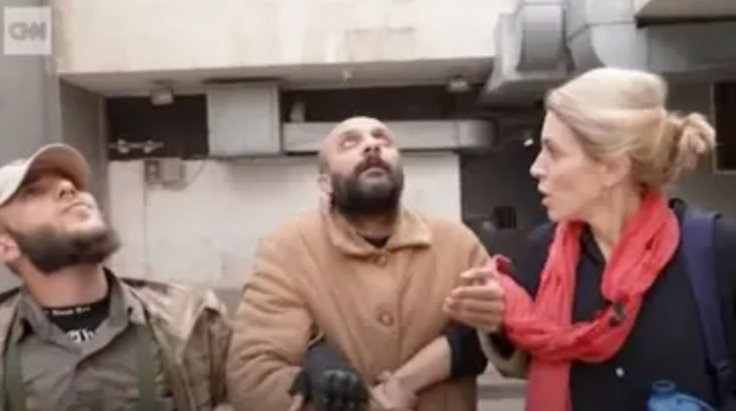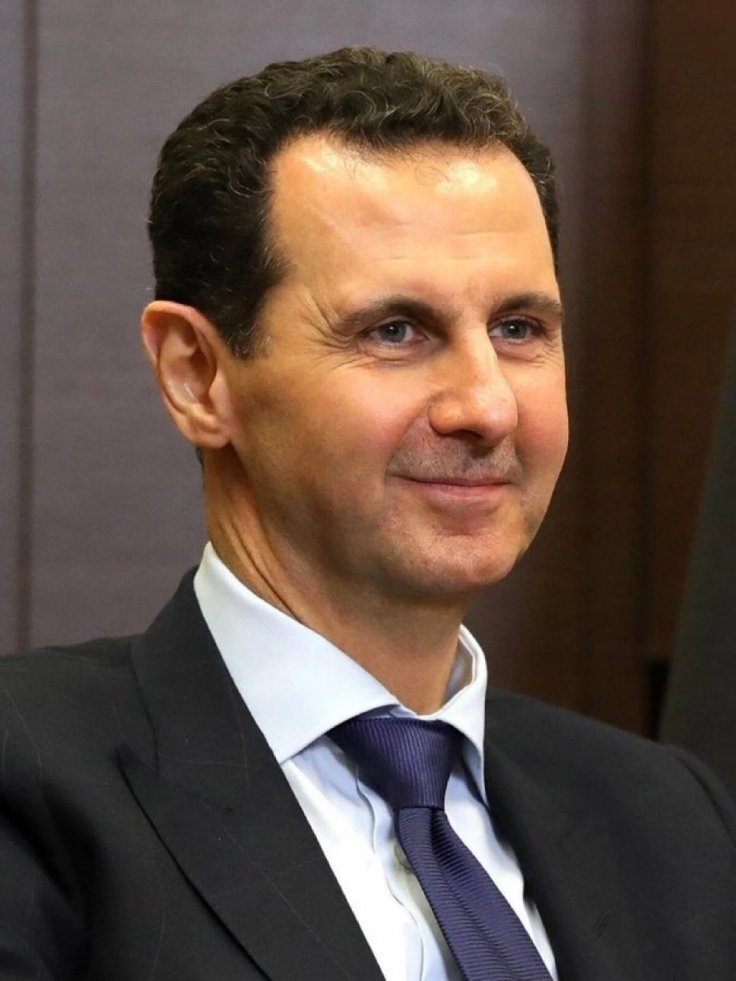The "hidden prisoner" rescued from a Syrian prison by CNN was a member of Bashar al-Assad's forces who tortured and killed civilians, a new report claims. The prisoner, identified as Salama Mohammad Salama, was a first lieutenant in the Syrian Air Force Intelligence under former President Assad's regime, the Syrian fact-checking organization Verify-Sy reported.
Salama is accused of murdering civilians and being responsible for the detention and torture of young men in Homs on false charges, the organization claimed, citing local residents. Salama has also been accused of "theft, extortion, and coercing residents to become informants," and of taking part in military operations on multiple fronts in Homs in 2014.
Prisoner in Disguise

Salama was found by CNN's chief international correspondent, Clarissa Ward, lying under a blanket in a Damascus prison, where he identified himself as a "civilian father" named Adel Gharbal. CNN has since launched an investigation into his true identity.
The man claimed he was taken from his home in Homs, arrested three months ago, and interrogated about his phone contacts. He said that he was left without food for four days when his captors fled during the fall of Damascus to rebel forces.

However, residents of Homs insist that Salama was imprisoned in Damascus less than a month ago following a dispute with a higher-ranking officer over money he allegedly extorted. Since then, he has reportedly been trying to garner sympathy, claiming he was "forced" into committing crimes as the regime collapsed, according to Verify-Sy.
Salama is also said to have deactivated his social media accounts and changed his phone number in a bid to erase any evidence of his involvement in armed activities and war crimes.
Ward and her team reportedly came across a locked cell while going around a detention facility where many civilians had been tortured and killed. A Syrian rebel guard is said to have shot open the door, revealing a trembling prisoner hiding under a blanket.

The man, who identified himself as Gharbal, a father from Homs, told Ward that he had not seen sunlight in three months. She gave him food and water before guiding him outside.
However, Verify-Sy raised doubts about the story, pointing out that the prisoner did not appear to react or blink when he supposedly saw the sky for the first time in months.
"Despite the purported harsh treatment of detainees in secret prisons, Gharbal appeared clean, well groomed and physically healthy, with no visible injuries or signs of torture - an incongruous portrayal of someone allegedly held in solitary confinement in the dark for 90 days," reported Verify-Sy, a part of Poynter's International Fact-Checking Network.
Fooled by His Lies
After conducting further investigation, Verify-Sy said it could not verify Gharbal's identity. However, after speaking with residents in Homs, they were able to identify him as Salama Mohammad Salama, also known as Abu Hamza.

"Residents of Al-Bayyada neighborhood said he was frequently stationed at a checkpoint in the area's western entrance, infamous for its abuses," Verify-Sy reported.
"Many were targeted simply for refusing to pay bribes, rejecting cooperation or even for arbitrary reasons like their appearance," the organization claimed.
CNN's team visited the prison while searching for the missing US journalist Austin Tice, and it appears the prison was aware of the team's arrival.
What happened to the prisoner after the CNN footage is unclear, as he was seen getting into a Red Crescent vehicle, which then drove off.
However, a CNN spokesperson told the Daily Beast that the events of the man's apparent rescue were accurately portrayed, as reported by the network. "No one other than the CNN team was aware of our plans to visit the prison building featured in our report that day," the spokesperson said.
"The events transpired as they appear in our film," he added.

"The decision to release the prisoner featured in our report was taken by the guard - a Syrian rebel. We reported the scene as it unfolded, including what the prisoner told us, with clear attribution."
The spokesperson, however, admitted that the prisoner might have provided Ward with a false name. "We have subsequently been investigating his background and are aware that he may have given a false identity," the spokesperson said.
"We are continuing our reporting into this and the wider story."









